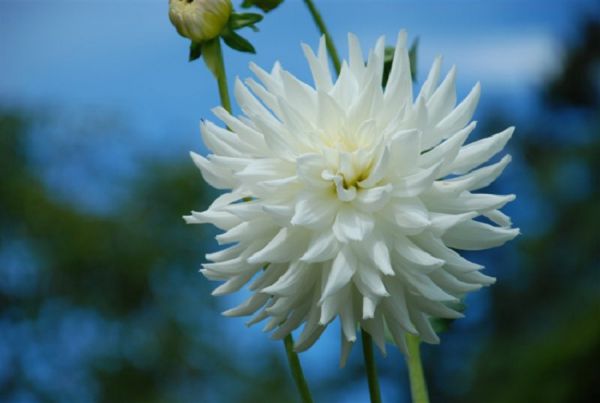Maintenance and Management of hydroponic Flowers
The daily maintenance of hydroponic flowers is quite simple, which is more worry-saving and labor-saving than soil-cultivated flowers and plants, but because many people are still newly exposed to hydroponic flowers, they are inevitably a little uncertain about the maintenance of hydroponic plants. I think it's more mysterious. Now let's talk about the conservation and management methods of hydroponic plants.
1. Temperature:
The suitable growth temperature of hydroponic plants is above 5 degrees above zero and below 30 degrees. In other words, as long as people feel more comfortable temperature, plants will feel very comfortable, they can grow normally, even in winter, can also flourish, add vitality for us.
Second, light:
Mainly scattered light. What is scattered light? It is the natural light that comes in from windows and other places, which is naturally scattered indoors. General plant growth as long as there is a proper light on the line, do not have to be exposed to the sun, in summer, but also try to avoid direct sunlight.
3. Nutrient solution:
In general, we can use the special nutrient solution sold on the market, according to the instructions to match the appropriate concentration, such as dilution 400x or 1000 times, the proportion must not be mistaken. When preparing, the tap water should be placed for two hours to half a day, and after its temperature is close to room temperature and the chlorine in the water is volatilized, the concentrated nutrient solution can be added in proportion to become a nutrient solution that can raise hydroponic plants.
4. Change water:
Water exchange refers to the replacement of water with nutrient solution added to the bottle. In general, the water is changed once in 5-10 days in spring and autumn, once in about 5 days in summer, and once in 10-15 days in winter (after the tap water is placed for half a day, the concentrated nutrient solution is added proportionally). The purpose of changing water is to ensure the oxygen supply in the water. Fresh water contains more oxygen, and plants will grow healthier. If you don't change water for a long time, plants can persist for a period of time. For example, sometimes people go on business trips or go on vacation. If they are not at home for ten days and a half months or even a month, the soil-cultivated plants can't stand it for a long time and die out, while hydroponic plants can persist as long as you add more water. But if the time is too long, the water in the bottle is not fresh or deteriorated, it will affect the growth of hydroponic plants, and in serious cases, it will also cause its death. Note: when changing water, please expose half or 1/3 of the plant's roots.
5. Cleaning:
Each time you change water, rinse the roots and containers of plants with clean water, trim withered branches, fallen leaves and rotten roots. Under normal growth conditions, hydroponic plants will regularly rot part of the roots and grow new roots, so when you find rotten roots, don't panic, just use sterilized scissors (sterilized with alcohol cotton) to trim off the rotten roots, and sometimes some old roots can be trimmed off to promote the growth of new roots (note: under the guidance of professionals). But be careful not to hurt the aquatic roots, otherwise it will affect the growth of plants. Please take a look at the roots of hydroponic plants in the picture on the right. The white and tender roots above are aquatic roots, some grow directly from the base of the stem, and some grow from the main root. They are all responsible for the absorption function of the plant. Make sure you don't hurt them.
6. Co-culture of flower fish:
At present, the most popular form of hydroponic plants is the co-culture of flower and fish. The above plants are green, and the lively little goldfish below are free to shuttle between the roots. The plants are quiet, the fish are moving, and they complement each other. The ornamental effect is very good. Goldfish raised in hydroponic plant bottles do not have to be fed frequently. If they are not fed at all, they can live for about three months. Usually they will eat some rotten roots of plants to maintain their life. They can also be fed once the day before each change of nutrient solution (be sure to feed less), so that the inexhaustible food and excreta of fish can be cleaned up in time, without affecting the growth of plants.
7. Moisturizing:
There is little moisture in the air in winter, especially in the north, where the room is very dry, which is disadvantageous to the growth of plants, so please spray foliage with clean water to maintain humidity, you can spray water twice a day.
Related
- What if the leaves of potted flowers turn yellow?
- Florescence Control of several Flowers
- Anti-freezing technology and post-freezing nursing technology of flowers
- What is the classification of flowers? What are the common methods of flower classification?
- Prevention and control of alkali and acid damage of flowers in courtyard
- Technology of Anti-freezing and restoring growth of Flower seedlings in greenhouse and greenhouse
- How does flower fertilization not hurt the root? Fertilization technology of flowers
- Key points of disinfection in flower greenhouse
- Several pesticides that are banned or used cautiously in flowers
- How to fertilize the flowers that watch the leaves?



